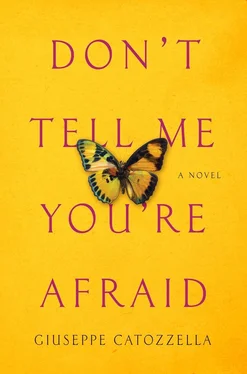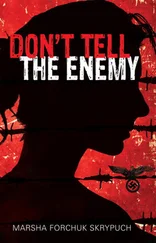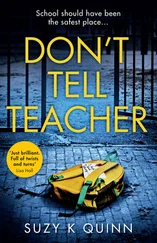The hotel wasn’t fancy — it wasn’t even all that clean — but it was what our poor Olympic Committee could afford. Still, I had a room all to myself with a bed, a mattress, and carpeting on the floor. Though the surroundings were a little shabby thanks to time and cigarette burns, there were no nocturnal animals, none of the spiders or cockroaches that drove Ubah crazy (sometimes at night she’d start hopping around like a cricket and would wake us all up with her shrieks). There were no awful things. Only nice things. But the best thing of all was the bathroom. I had never had one in my entire life. We’d always used the common toilet in the courtyard. A hut with a big hole in the ground that was emptied each week. We’ve never had running water; my brothers went to get water from the well every night before supper. By contrast, here in the hotel in Djibouti I had a bathroom all to myself.
A sink with a faucet. It was a little dirty, and the steady trickle had left a rusty stain, but if I turned the faucet on, as much water as I wanted came out.
A bathtub with a shower. I could stand under it and turn on the hot water and wash as long as I wanted without Hooyo saying anything.
And there was a toilet bowl for doing your business. I could pull the chain to flush it and the stink disappeared.
After ten minutes I felt like going down to the reception desk and calling Taageere to have him pass me Hodan so I could tell her everything. But I would save the news until I returned.
That night, on that mattress, I slept so soundly that it seemed like forever.
The next morning we took the bus straight to the stadium. It was a real stadium; I had never seen one like it. Not even the one in Hargeysa had looked anything like it. This was an honest-to-goodness stadium, even bigger than the new one we had in Mogadishu: the one occupied by the militias and their tanks. It was enormous, huge. And its stands soared several tiers high, packed with people in constant motion, chanting, cheering, clapping, or whistling.
I was all worked up, but Xassan was serene; he appeared to be in perfect command of the situation.
The other athletes seemed much taller and more muscular than I. And they were dressed better too. I was wearing a used tracksuit. And I would run in my own T-shirt, my own shorts. The terry headband from Aabe. Somalia couldn’t afford more, and I didn’t ask for more; what I had already seemed like a lot to me. The other women, however, wore high-tech tank tops and matching shorts. Brand-name shoes and socks.
It all made me uncomfortable; I felt out of place, inferior. Xassan, on the other hand, remained composed, as if he were used to it.
I just had to keep in mind that, like the other women, I was there to represent my country and that I was being asked to give it my all. And to do so in one shot: There were no qualifying rounds; we gave it our best in two hundred meters.
“Run as fast as you can,” Xassan said while we waited at the edge of the track for them to call our heat.
“I’ll try.”
“Samia.” I looked at him. He lowered his voice almost to a whisper. “You won’t win today. You won’t even come close, but show me what you can do. Show me you’re not afraid of the track, the spectators, or your opponents.”
I squinted as if the sun were in my eyes, forcing myself not to lower my gaze. “I’m never afraid, Xassan,” I lied.
“Good girl. Don’t be afraid today either. You’ll see: Everything will go as it should.” Then he walked off toward the end of the course, carrying the tracksuit that I had worn during the warm-up, and I was left alone to await the call.
As I’d done in Hargeysa, and as I now did at night in Mogadishu, I lay down on the ground. It had become a ritual. I loved to feel the grass prickling my back and have its subtle, pungent scent in my nose. A ritual that I hoped would bring me luck here too.
When I heard my name on the loudspeaker, I got up. Head down, focused, I went to my block. I was starting in the fifth lane.
In much less time than I would have expected, the starting gun was fired.
Boom .
I gave it my all, everything I had.
The others were simply faster than me; Xassan was right. I pushed to the limit, but there was nothing more I could do. Though I spurred my muscles to the bursting point, it was no use.
I finished sixth out of eight.
It had not gone well, yet I was still nearly ecstatic.
Aabe had watched me from the place where he was, and he was as joyful as I was; I felt it. Maybe even more so. His little warrior had run and given it her all, even though she hadn’t won. But winning really didn’t matter to him — I knew that. All he wanted was for me to push myself to the limit.
Two days later, at home, I regaled them all with my stories. The trip, the hotel, the stadium, the opponents, the size of the crowd, Xassan, all of it. I went to each of my siblings and insisted on repeating the whole account. I was all revved up.
Hodan, on the other hand, seemed strange.
She was happy for me, but I sensed a distance. It felt like she had something to tell me and was just waiting for the right time, even though she was trying hard not to let me notice. But between us there could be no secrets. I knew everything about her, even the slightest vibe, just as she knew everything about me.
It wasn’t until just before going to bed that she told me she needed to talk to me. That she had made a decision.
I didn’t know what she was talking about.
At first, through tears and sobs, she just kept repeating that she had made up her mind.
I took her by the hand and led her to our room, to our mattresses, our natural place. Nothing could be so terrible; we had already experienced all the pain imaginable with Aabe’s death.
But Hodan kept sobbing and saying that she shouldn’t be crying, that it was actually a positive thing, a good thing. For her, at least.
Then she told me.
She could no longer stay in our country; the sense of guilt for what had happened to Aabe was killing her. The only thing she could do was leave. She had waited to tell me, waited until I ran the race in Djibouti and came back happy, at least, if not a winner.
But she had already made up her mind two months ago. And I hadn’t noticed a thing. Aabe’s death on the one hand and the Olympic Committee on the other must have blinded me to the world around me if I hadn’t realized that Hodan was brooding over such an important decision.
She kept saying that it was all her fault that our father was gone, but I knew that it was my fault too. Indeed, in my heart I believed that Aabe had been taken away so that I could run in peace.
Something must be wrong, Hodan said, if Aabe had always urged us to follow our instinct for freedom, had actually nurtured it in us, yet that same instinct had first crippled him and then killed him.
I begged her; I tried in every way I could to remind her of what we had promised each other years ago, a promise that still meant something to me: that we would never leave our country, that we would stay and change it. I tried telling her that maybe Aabe had sacrificed himself for us, to allow us to realize our dreams more freely. Which were also his dreams for the liberation of our country.
“Don’t you remember what we told each other in bed, almost every night?” I said, tears streaming down my face.
“Of course I remember my songs.” Her voice was hard, turned to stone.
“So how can you want to leave now?”
“Everything has changed, Samia.”
“What’s changed? There’s war now and there was war before.” I was angry, my hands twitching.
“Now there’s Al-Shabaab.” Hodan, unlike me, was composed. “Before, there was respect; now there’s only violence.”
Читать дальше




![Ally Carter - [Gallagher Girls 01] I'd Tell You I Love You But Then I'd Have to Kill You](/books/262179/ally-carter-gallagher-girls-01-i-d-tell-you-i-lo-thumb.webp)







